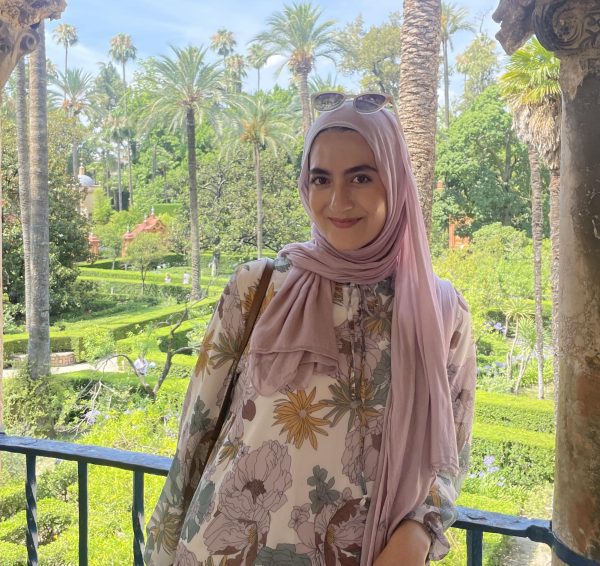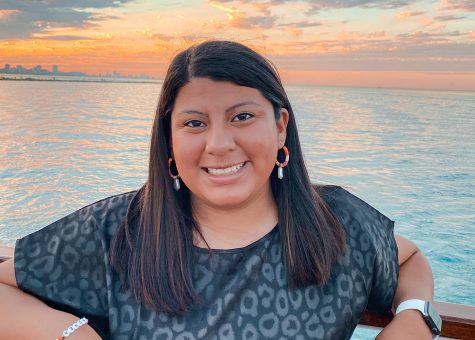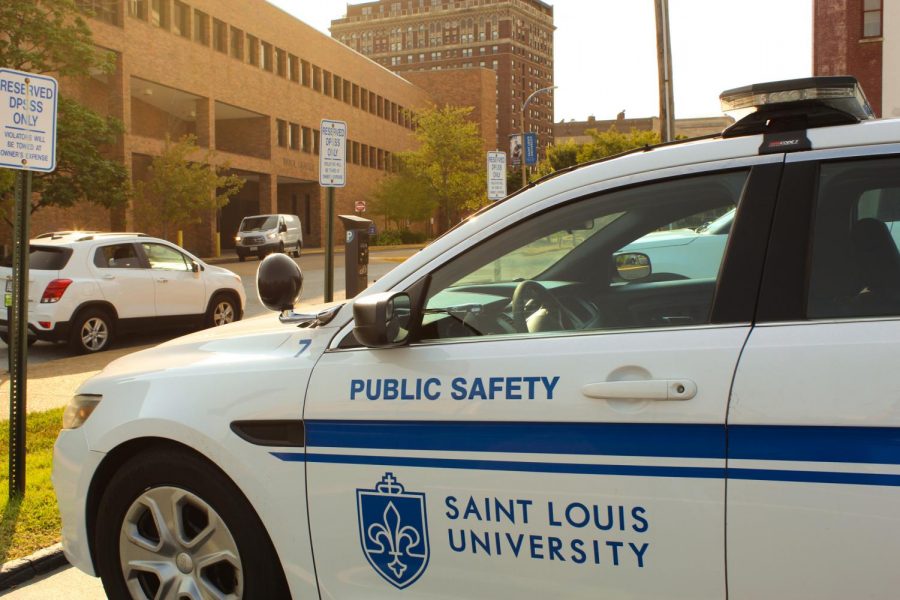DPS Strives to Improve its Community Role
Across campus last year, students joined the national movement for justice by leading protests and vigils for victims of police violence. Their actions have ignited a changing culture within the University, and their voices have been heard within administrative departments, including SLU’s Department of Public Safety (DPS), which has begun to implement several important changes concerning its structure and campus presence. The changes made to DPS and other programs were born in large part following the release of 11 demands by students protesting in September 2020, after which administrators met with students to address their concerns about injustice on campus.
Changes to DPS
Previously, DPS was under the Division of Business and Finance—which is not uncommon in other universities across the county—but it led to more limited interactions between students and DPS officers. In March, however, DPS was transferred to the Division of Student Development, led by Vice President Sarah Cunningham and reporting to the Provost’s Office. The University is hoping this structural change will produce positive results in the Department.
“It situates DPS with a group of colleagues that are more student front-facing,” Cunningham said. “When thinking about all the divisions on campus, who else has the word “student” in them? The Division of Student Development puts them in a place to build partnerships more easily on behalf of student success in ways that the other location of the organization didn’t serve them as well.”
Captain Darryl Walker, who currently serves as the interim Assistant Vice President for Public Safety, hopes that this change will bring DPS closer to their goals of engaging and building trust with the entire student body. He acknowledges that the Department must also make an active effort to build better relationships with Black and brown students, and other historically underserved portions of the student population.
“I realize that for a long time, DPS has been seen as just enforcers instead of members of the community, and that’s what we are trying to change,” Walker said. “We’re not a commissioned law enforcement agency. We’re not police, and that gives us the advantage of being able to better respond to different students in crisis. It gives us an opportunity not to have to call the police for everything and bring the police onto our campus.”
To further shift how students perceive DPS officers, the Department has implemented a residential liaison program to allow officers to meet with Residential Advisors and other residents more consistently in order to form closer relationships with them. This program, and other services that they offer, are now listed on the Department’s newly revamped website in an effort to be more transparent with the community.
Other ongoing changes to the Department include de-escalation, crisis intervention and multicultural fluency training for the nearly 70 uniformed officers on campus. Walker explained that the crisis intervention training in particular can help officers assess when members of the community are in crisis—and more importantly, how to handle it. The officers have also been relying on the University Counseling Center as well as the Student Conduct Center to settle issues that arise in non-escalatory methods.
“Understanding different cultures, and realizing our own biases was part of the multicultural fluency training that we did,” Walker said. “If we don’t understand the biases that we have, we can’t understand the different communities that we deal with. We have to confront those things.”
While the Department has laid out and is working on many goals for the coming year, Cunningham is still looking to fill the next permanent Assistant Vice President for Public Safety. She has done multiple listening sessions with students and faculty to guide the search. Simultaneously, Cunningham has launched an external review of DPS, which has never been done previously, to further assess the strengths and areas for improvement.
“Post-September 2020, and even before then possibly, there’s definitely been growing intentionality with integrating DPS into the campus community and how it engages with the campus,” junior Aric Hamilton, SGA’s Vice President for Diversity and Inclusion, said. “There’s been a change in vision and mission in terms of how institutionally we view campus and public safety and how that looks in practice.”
Relationship with the surrounding community
On June 25, a white DPS officer shot and killed Omar Zulueta Jr., an armed Black St. Louis man not affiliated with the University. This shooting, which is now being investigated by the St. Louis City Circuit Attorney’s Office, took place near the Biomedical Engineering Building near North Campus a little past midnight. This event brought into question the relationship of DPS and SLU with Midtown and surrounding neighborhoods.
“It was just an immediate feeling of shock, because it had been an ongoing campus conversation regarding the standards of public safety and the role in which our SLU community plays within the outer St. Louis community and the interaction between the two,” Hamilton said. “I think that there’s inherent harm with the relationship to the outer community no matter how justified or not justified the situation was, because it was just a traumatic experience that was fatal.”
Hamilton explained that while a fatal instance like this has not happened before, it points to a larger conversation about the historical relationship between the two communities. The University’s economic and campus expansion in the previous decades as well as interpersonal interactions and campus culture come into play. He explains the concept of the “SLU bubble” and how students can overcome it.
“You have generations of students who come in carrying with them inherent biases to Black folks and unhoused individuals, and what they perceive is safety,” Hamilton said. “There is a lot of internalized classism [and] anti-Blackness that students bring with them to campus. It takes a journey of being reflective and critical of oneself to enlighten yourself about your role in that. It’s also about accountability [for yourself] and your peers.”
Until the investigation concludes, DPS cannot speak about the details of the shooting. However, Walker noted that the Department’s functions in the outer community and with unhoused people has been important. Additionally, the Department is working to build partnerships with nearby institutions like Harris-Stowe State University.
“Walker and the Department have thought about how we engage our local neighbors, and about what those relationships could look like and what some of those obstacles are,” Cunningham said. “We do good work with some of our facilities that are off-campus where we have students that are residing, but I think this is probably an area of potential growth for us.”
Healing and moving forward
Because of the complexity of the shooting, many are still waiting to understand the details of the event and the University’s plans for implementing change. Hamilton explained that whatever the collective student response, it will be influenced by the layers of the COVID-19 pandemic and systemic injustices that they experienced last year.
“There really is no end game plan on how to navigate when there’s a shooting in the community,” Hamilton said. “But I think that it does open the door for radical healing. There are opportunities to restore the harm that took place, between multiple parties, as well as growth in the relationship between SLU and the community.”
Reflecting on their roles, Cunningham and Walker hope to create an environment and action plan that recognizes the changing needs for SLU’s safety and campus.
“The only thing I ask is that the University community be patient with DPS,” Walker said. “We’re trying our best to move forward in a positive way. I want people to know that DPS is here. We’re part of the community. We’re here to make sure that the community is safe. But we’re also here to engage with the community, the students of color and all students at all times.”
Your donation will support the student journalists of Saint Louis University.







Avis Meyer • Sep 21, 2021 at 2:12 pm
Well-organized and balanced piece, Ulaa. The June shooting incident is blended in, smoothly and appropriately, with an eye to balance and breadth, not sensationalism, quotes and all. Keep up the good work.